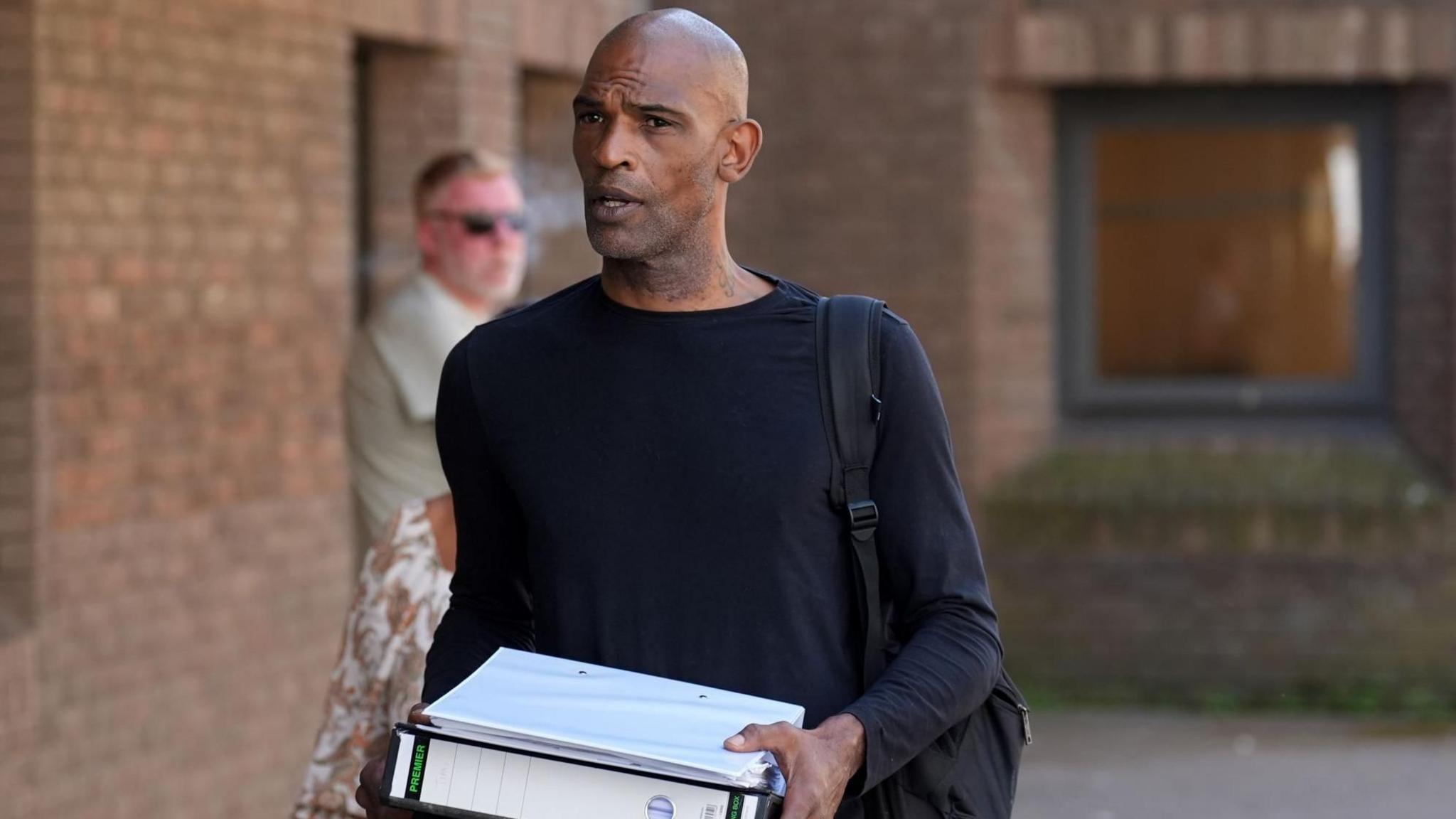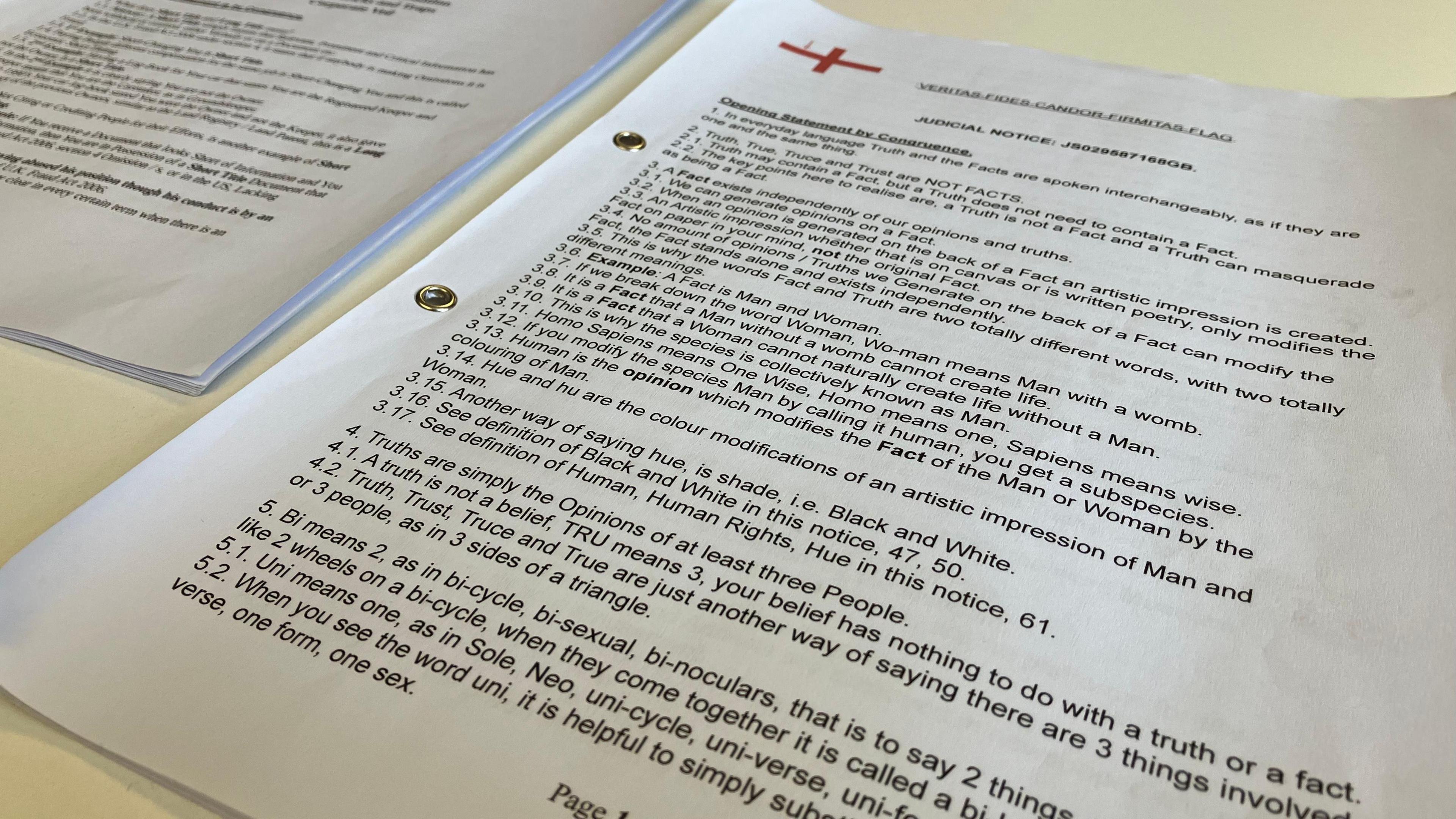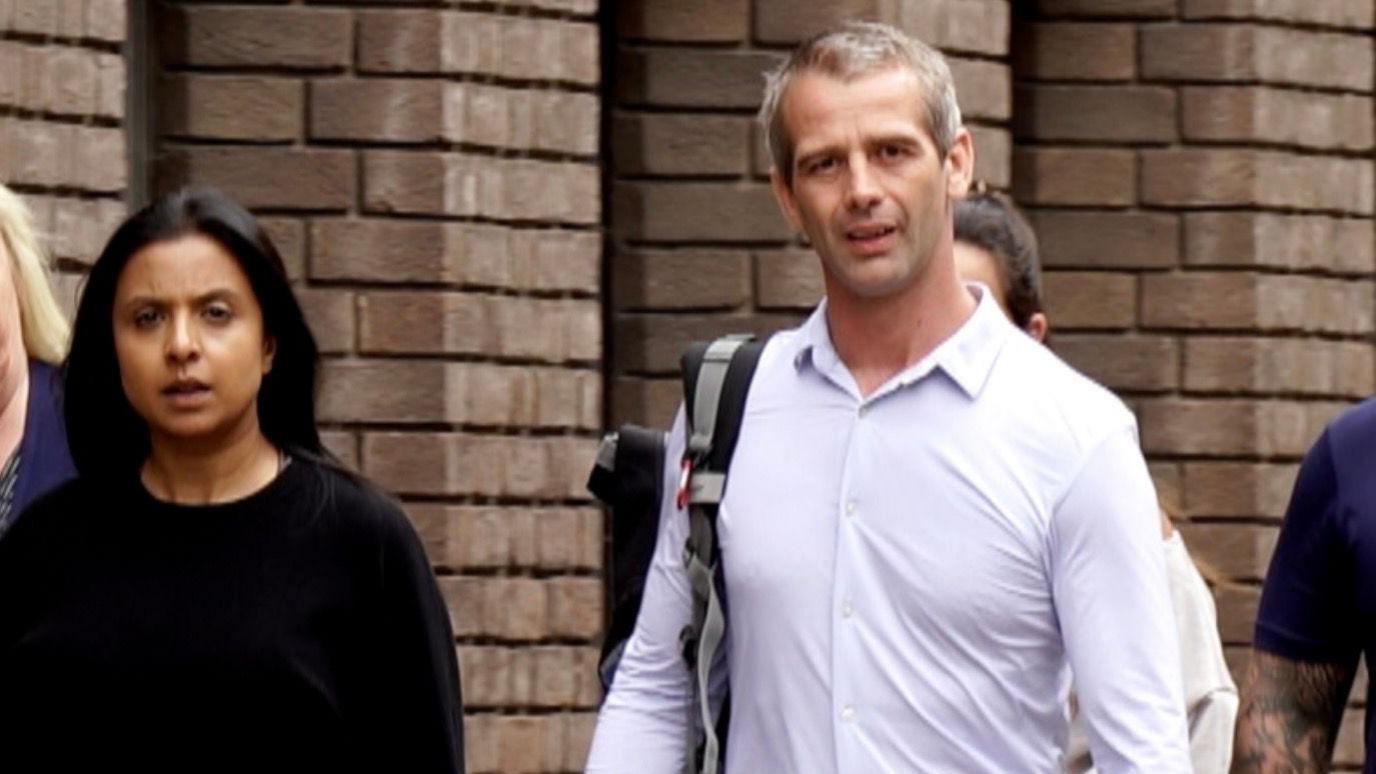Threats sent to coroner deemed 'low risk' by police

Lincoln Brookes, senior coroner for Essex, was threatened with kidnap and corporal punishment "on the spot"
- Published
Letters sent to a coroner that threatened him with corporal punishment and kidnap were deemed "low risk" by police, the BBC can reveal.
It came days before a group stormed Essex Coroners' Court in an attempt to abduct Lincoln Brookes in April 2023.
Mr Brookes told a trial he felt the letters were "a threat of serious harm" and he found them "upsetting".
An Essex Police spokeswoman said the matter was referred to counter-terrorism officers and the senior coroner was given "extensive safeguarding advice".
Mark Christopher, 59, Matthew Martin, 47, Shiza Harper, 45, and Sean Harper, 38 – from Essex and east London – were found guilty of conspiring to kidnap and falsely imprison Mr Brookes on Tuesday.
Christopher, from Forest Gate, east London, was also convicted of sending a letter or email with intent to cause distress of anxiety.
They were part of an "anti-establishment cult" that wanted to shut down the courts in Essex.

Sean and Shiza Harper were members of the so-called Federal Postal Court, an online subscription-based movement
One of the 25-page letters sent to Mr Brookes was covered in fingerprints and photocopies of "human matter" including DNA, saliva, hair and blood, the trial heard.
Another said Mr Brookes should be "held for a minimum of 45 days" and added: "The use of corporal punishment may be administered on the spot."
When giving evidence, the coroner said he believed the letters – received on 11 and 12 April 2023 – were "a serious threat to me".
However, the jury heard that when Mr Brookes raised his concerns with a senior police officer, he was told: "This is the sort of thing a lot of people get in public life."

Matthew Martin was acting as a sheriff for the "conspiracy theory" group, the court heard
Mr Brookes continued: "I wanted it taken seriously, so he agreed to refer it to counter-terrorism units.
"The outcome was they felt the risk was low and this is the sort of letter you should come to expect.
"They would rather not crime them but treat them as evidence instead."
It was only "by chance" that Mr Brookes was not in Courtroom 2 at Seax House, Chelmsford, when the group entered with handcuffs on 20 April that year, the trial heard.

The BBC was handed paperwork by the group during a previous court hearing
The police spokeswoman said the letters were assessed by a senior detective and deemed "low risk" after consultation.
An intelligence report was then submitted in relation to the group, in order to monitor any developments, she said.
The spokeswoman added that the investigation team was not made aware of a letter the group sent about their plan to attend court.
"[This gave] officers no opportunity to proactively respond to the threats made," she said.
"The victim has been provided with regular and thorough updates throughout the investigation and extensive safeguarding advice was given."
Get in touch
Do you have a story suggestion for Essex?
Follow Essex news on BBC Sounds, Facebook, external, Instagram, external and X, external.
Related topics
- Published30 July 2024

- Published17 July 2024

- Published16 July 2024
